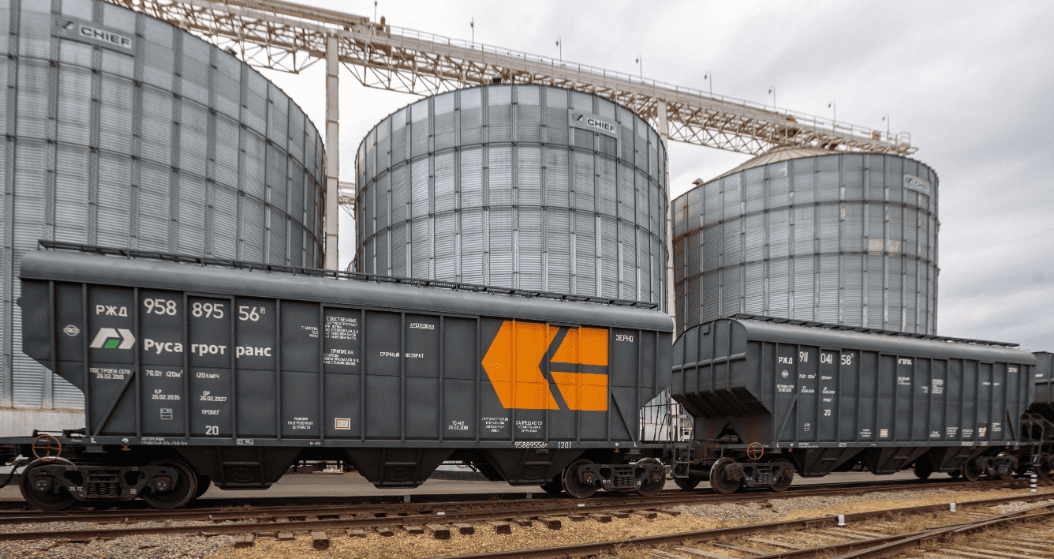
In 2022 Rusagrotrans (part of Demetra-Holding) sent 828 block trains with a total volume of 1.7 million tons of grain, which was an all-time record for the company. For comparison, the company arranged 206 block trains with a volume of 500 thousand tons of grain in 2021 and 447 block trains with a volume of 900 thousand tons of grain in 2020.
According to the Rusagrotrans Research Center, block-train service reduce transit time by 1.5-2 times. Last year, the company managed to arrange shipment of a record grain harvest of 153.8 million tons amid insufficient rail capacity and the increased turnover time of freight cars.
In 2022, the turnover time of the hopper car fleet on the Russian Railways network significantly deteriorated, including the car fleet of Rusagrotrans: the turnover time increased by 11% in comparison with 2021 and by 27% in comparison with 2020.
To develop block-train service, Rusagrotrans, together with Russian Railways and major shippers, increased the number of stations for the departure of loaded trains and the assignment of empty trains from 43 in 2021 to 171 in 2022. The increase in the number of places for large-scale shipments helped to scale routing technologies to the roads and stations of the Central, Volga and Siberia regions.
The company arranged joint dispatch of freight express trains with Russian Railways and made it possible to collect cargo from different grain elevators into one train. Shipments were made from ten grain elevators in the North Caucasian, Southern and Central Federal Districts, including such large enterprises as Ipatovsky Grain Processing Plant (Stavropol Region) and Oktyabrsky Elevator (Volgograd Region). The company shipped 71 thousand tons of grain by 21 block trains from IGPP and 92 thousand tons of grain by 28 block trains from Oktyabrsky Elevator in 2022.
Alexey Barbariush, CEO of Rusagrotrans:
'Transformation of logistics towards block-train service helps to meet the current challenges of the grain market, such as the need to increase the volume of shipment and the profitability of the grain industry. Grain transportation by block trains is the most efficient way of cargo transportation, which helps operators to use the fleet with maximum efficiency and reduce delivery time, and regional grain elevators to become grain hubs, increasing their importance in supply chains. Rusagrotrans will continue to develop this service, especially since the export growth is predicted against the backdrop of the record grain carryover stocks of 26 million tons and a good harvest of 127 million tons is expected in 2023.'